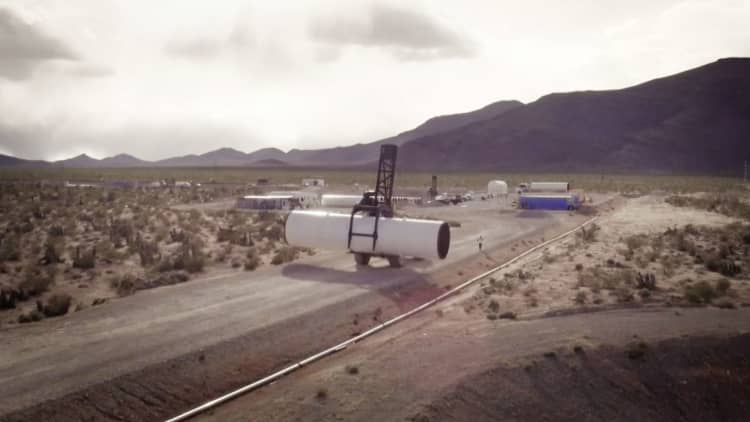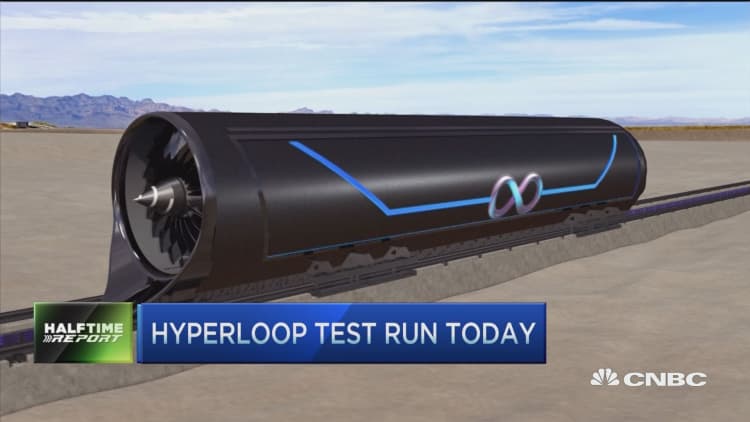


It's a bird. ... It's a plane. ... It's a pod of steel! The future of transportation could be closer than you think as Hyperloop One tested its electric engine in its first open-air demonstration on Wednesday.
Before its first test run, Rob Lloyd, CEO of the tech start-up, said that the company — formerly known as Hyperloop Transportation Technologies — is "rewriting the rules" in transportation technology.
"The world is watching. It's cynical, but it's cheering for us at the same time," Lloyd told CNBC's "Squawk Alley." "Our objective is to find the routes in the world where governments, citizens, regulators can come together really quickly."
The test was a demonstration of the production-scale electric motor that the company developed, Lloyd said. A test sled powered by the motor, which will go inside the end-product tubes, ran about 2.5Gs fast for only a couple of seconds on about a third of a mile-long straight track in the desert a little north of Las Vegas.
This will be the same site for the first full-scale version of the transportation technology. A full demonstration of the system is slated to run by the end of 2016, according to Lloyd.
The growth of this transportation innovation has been accelerating since Tesla's CEO Elon Musk, who has no affiliation with the companies actually producing this technology, proposed the idea for the project about three years ago. The Nevada testing site has been developing for less than six months, CNBC reported on "Fast Money Halftime Report."
The company will start to produce the cargo tubes in a couple of weeks, Lloyd said. These steel pods, 11 feet in diameter, will be magnetically suspended on a track and able to reach up to 760 miles per hour.
Lloyd said Hyperloop is slated have a full-scale project in progress in 2017. The pods are set to move the first freight in 2019 and the first passengers in 2021.
David Levinson, a professor at the University of Minnesota's Department of Civil Engineering, thinks the time frame for this is decades away.
"New technologies like this is not something that can be deployed overnight," he told CNBC's "Power Lunch." "Particularly with something like Hyperloop, which requires the development of new vehicles as well as the development of new infrastructure, it's going to take a very long time before this becomes mainstream."
Lloyd said that the technology is not confined to the United States, but "wherever regulators, governments and people want that."
"This isn't going to be about riding in a tube," he said on CNBC's "Fast Money Halftime Report." "We're going to leverage technology and some of the smartest minds to create a transportation experience that feels like riding in an elevator but allows us to customize what we do when we're moving."




